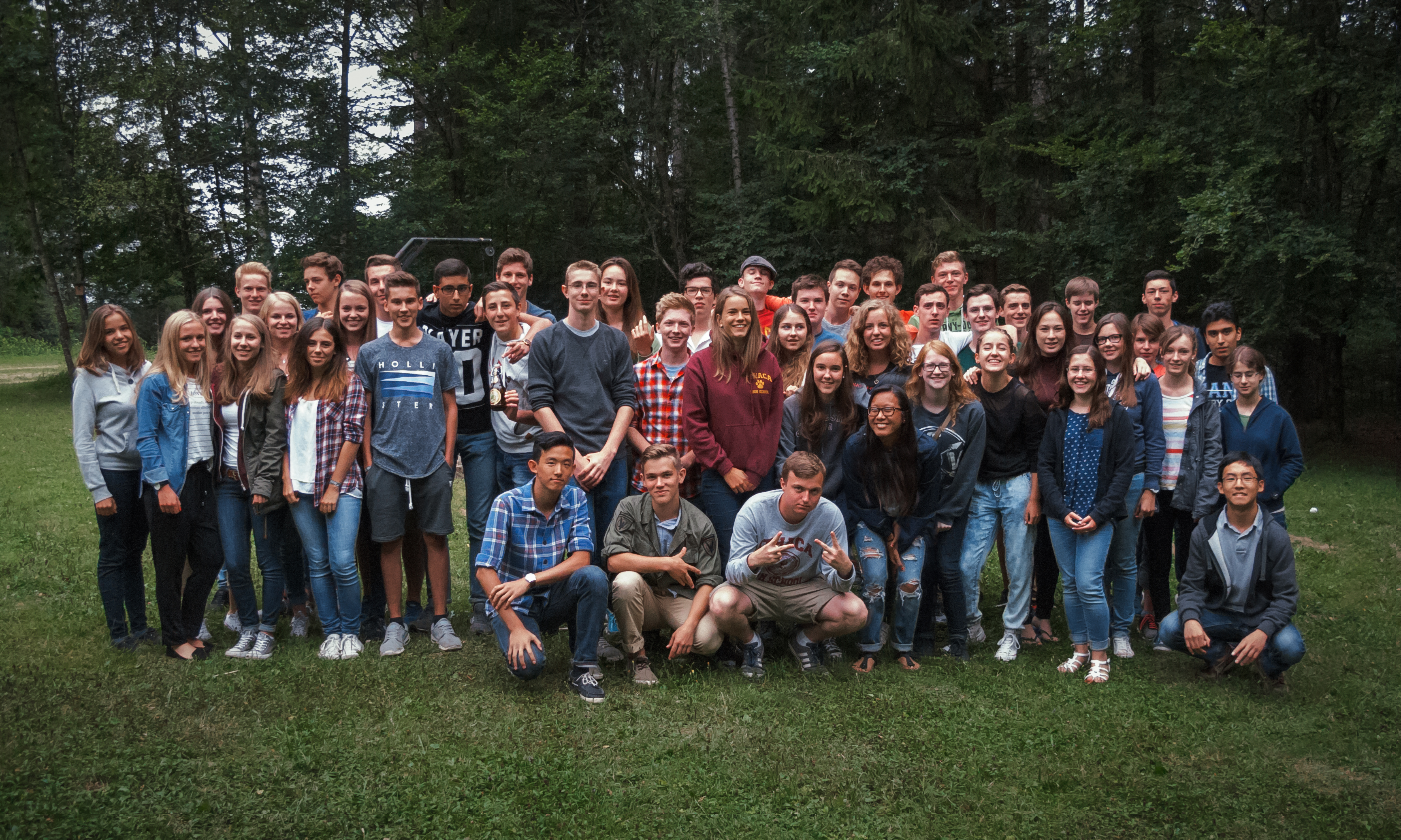On July 6, I boarded the sports bus with 23 students and three teachers, suitcases in hand. We were bound for an exchange trip that promised to change our lives, a promise that certainly was fulfilled.
Since 1988, IHS has held an exchange every two years with the Otto-Hahn high school in Tuttlingen, Germany. The program is supported by the German-American Partnership Program and is open to 10th and 11th grade students taking German.
Last October, the German students and teachers descended on IHS for three weeks for their half of the exchange. This summer, the Americans went off to complete their half, spending around three weeks in Tuttlingen then three days in Munich.
Exchange programs offer the opportunity to briefly live a radically different life, and I strongly recommend such exchanges to anyone who wants to experience a culture from more than a tourist perspective. While I cannot speak for the other people on the trip, I personally had a wonderful experience in most respects. Although attending school, which lasted from 7:30 a.m. to 1:30 p.m. most days, was difficult for us after having had only a few weeks of summer break for ourselves, it allowed us to see how German schools work. In Germany, for the most part, high schoolers remain with a single group of classmates all year rather than changing groups with each period; teachers change rooms just as frequently as students, and a larger number of subjects are studied each year. I was surprised to find that, at the school in Tuttlingen, the focus in history class was primarily on Europe and English-speaking countries. Perhaps one of the few places American education comes out ahead is its inclusion of African, Asian, and South American history.
Another important difference between the German and American school systems is that in Germany, religion class is a requirement. The only specific religions offered are Catholicism and Protestantism, so if one does not believe in those two faiths, they take an ethics class instead. Coming from a country where the separation of church and state is enshrined in the Constitution and protected by Supreme Court decisions, the presence of any sort of religion class was quite shocking.
One additional benefit of an exchange is the chance to try out a new family. While some people struggled to fit in with host students with whom they shared little in common, I had a wonderful time with my host family. In Ithaca, I live with just my dad; in Germany, my family more than doubled as I gained two host siblings and two parents. The radically different family dynamic was just as fascinating to me as the sights I saw with my host family on the trips we took to Lake Constance and Nuremberg.
There was also the cultural component to living in a different country. Although both countries are fairly liberal, there is some variety in values. My host sister told me that homogeneity is valued far more in Germany than individuality; the uniqueness that, if not always celebrated, is usually accepted without much comment in the U.S. would be highly stigmatized in Germany. Conversely, actions which are in some ways stigmatized and certainly frowned upon by the American establishment, such as smoking and drinking heavily, are celebrated as part of German culture. There, people start consuming alcohol as young as age 16 and those over 18 are allowed to smoke.
Of course, a trip to Germany means that, of necessity, its recent past will be revisited. Reminders of the Holocaust and World War II are everywhere throughout Germany. In fact, the school we attended in Germany is built on the site of a former forced labor camp, where first prisoners from Eastern Europe then French prisoners of war worked for the local medical supply company. Our group visited the original concentration camp, Dachau, when we were in Munich. The experience was chilling, the place disturbing; several students cried. A group of Jewish students, myself included, said the Mourner’s Kaddish in Hebrew for those lost in the Shoah.
My visit to Dachau, and the frequent reminders I received throughout my time in Germany of its role in World War II, led me to struggle with huge questions: how can I embrace the wonderful experiences I’ve had in Germany while remembering the horrifying human suffering that was inflicted by the Nazis just 70 years ago? Visiting places like Dachau, the Documentation Center at the Nazi Party Rally Grounds in Nuremberg, and the Jewish Museum in Munich did not answer that question for me. Rather, they made me think all the harder. That’s better than an easy answer, I think; I owe it to the victims of the Third Reich to struggle with that question. If the answer was easily attained, the memories of the tragedy would also be easily lost.
In a country filled with wonderful, ancient castles, beautiful forests, and delicious food, there’s a lot to be amazed by. But the most important are the people. It’s the people who force you to engage with history and actually think about the past, and it’s the people who fulfilled the promise to change our lives through the exchange.

